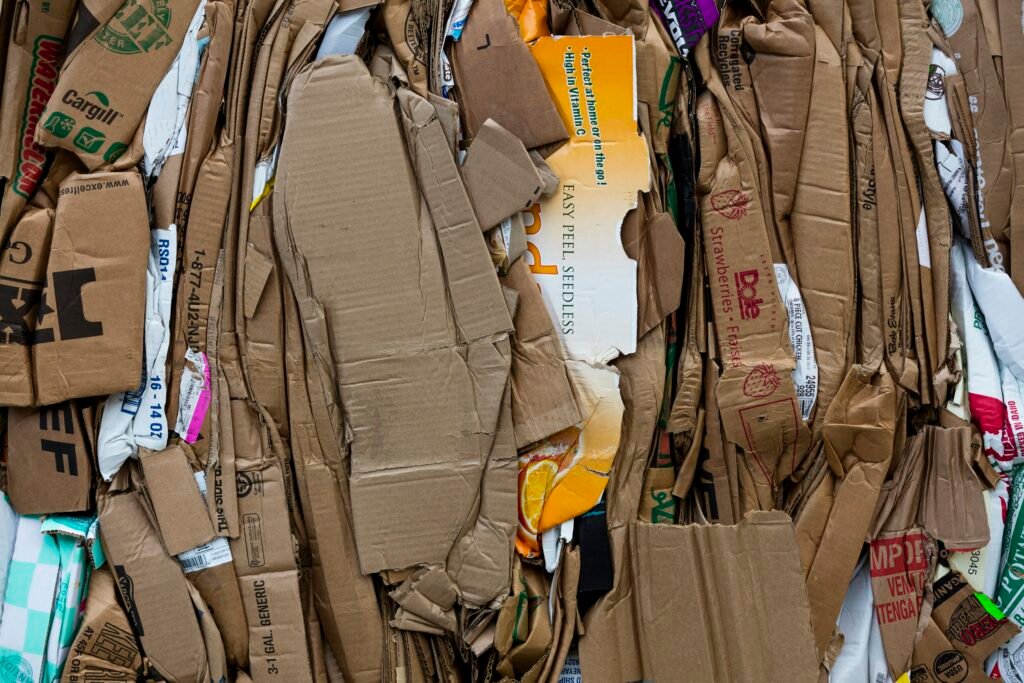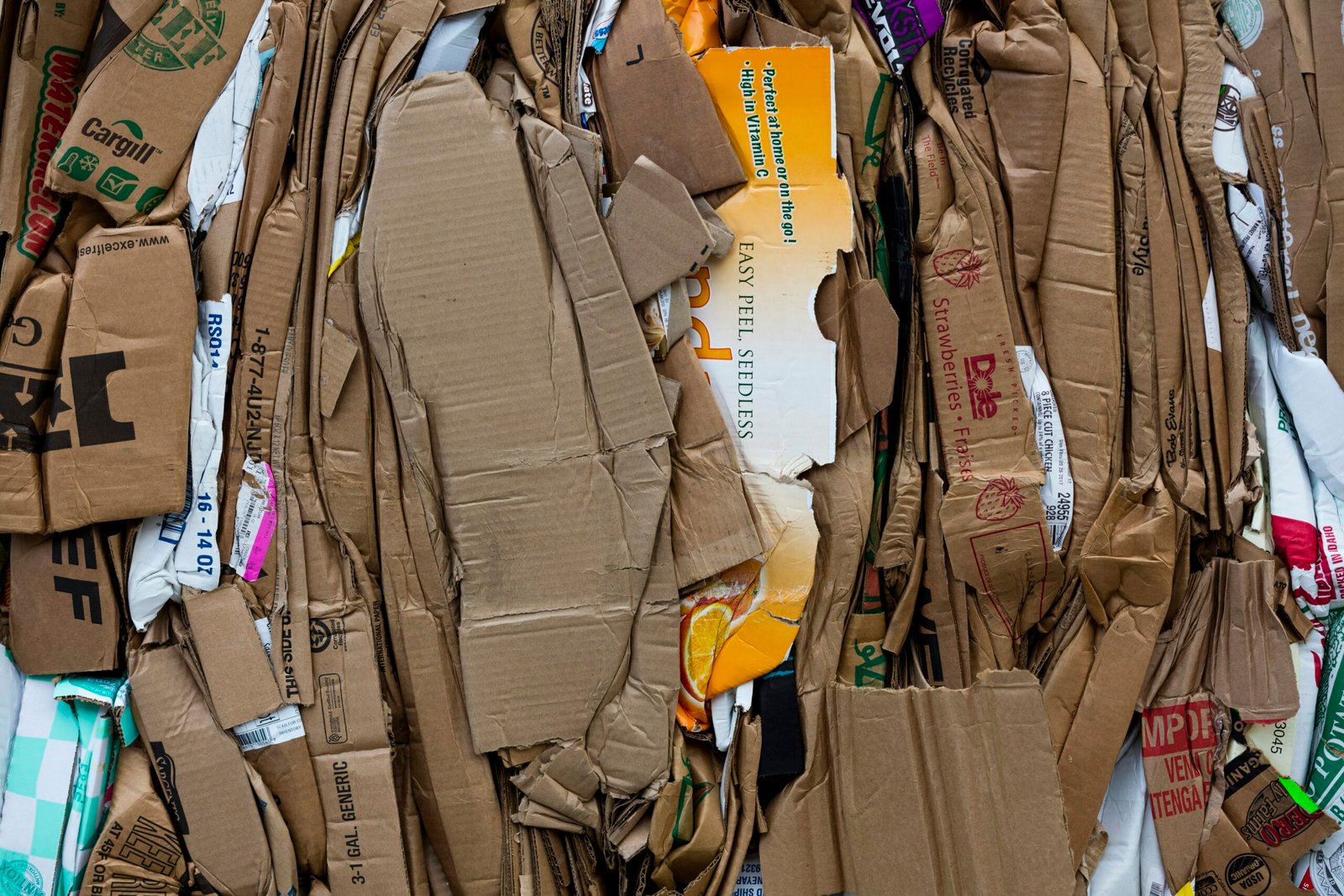If you’re in the market for a new box, whether it be for storage, organization, or just as a stylish accessory, look no further than “The Definitive Box Buying Guide.” This comprehensive guide is your go-to resource for all things box-related. Packed with expert tips, suggestions, and helpful insights, this guide will help you navigate the world of boxes and find the perfect one that suits your needs and personal style. From different materials and sizes to various designs and functionalities, this guide has got you covered. Say goodbye to clutter and hello to organized bliss with the help of “The Definitive Box Buying Guide.”
Factors to Consider Before Buying a Box
Box Material
When it comes to buying a box, the material used is an essential factor to consider. There are various options available, each with its own pros and cons. Cardboard boxes are a popular choice due to their affordability, versatility, and recyclability. Plastic boxes offer durability and resistance to moisture, making them suitable for storing items in damp environments. Wooden boxes provide a classic and sturdy option, often used for long-term storage or shipping. Metal boxes, on the other hand, are known for their strength and security. Lastly, customized boxes are an excellent choice for businesses or individuals who need packaging tailored to their specific needs.
Box Size
Determining the right box size is crucial to ensure that your items fit snugly while also allowing space for protective padding. Consider the dimensions of the items you plan to pack and choose a box size that accommodates them comfortably. It’s essential to avoid overpacking or underutilizing the space in the box to prevent damage during transit.
Box Shape
The shape of the box is another factor to consider. Depending on what you’re planning to pack, certain shapes may be more suitable than others. For example, if you’re shipping or storing items that are long and slender, such as posters or umbrellas, a rectangular box might be the best option. On the other hand, if you’re packing bulky or irregularly shaped items, a square or cube-shaped box may provide better stability and protection.
Box Usage
Understanding the purpose of the box is vital in selecting the right one. Are you moving to a new home? Shipping products to customers? Storing items long-term? Or perhaps you need gift boxes for special occasions? Each situation calls for a different type of box. By considering the specific usage, you can narrow down your options and find a box that meets your requirements.
Box Strength
The strength of a box is crucial, especially when it comes to shipping or storing heavy items. Ensure that the box you choose can withstand the weight and pressure it will encounter during transportation and storage. Choosing a box with a high burst strength or a high weight capacity will give you peace of mind that your belongings or products will remain safe and intact.
Different Types of Boxes
Cardboard Boxes
Cardboard boxes are a cost-effective and versatile option for various packaging needs. They are lightweight, easy to assemble, and widely available in different sizes. Cardboard boxes are particularly popular for moving, shipping, and general storage purposes. They can be recycled, making them an environmentally friendly choice.
Plastic Boxes
Plastic boxes offer durability and are resistant to moisture, making them ideal for storing items vulnerable to water damage. They come in various sizes and are often stackable, ensuring efficient use of space. Plastic boxes are commonly used in industries such as healthcare, food storage, and retail. However, it’s important to note that plastic is not as environmentally friendly as other materials.
Wooden Boxes
Wooden boxes provide a sturdy and classic option for packaging and storage. They are often used for long-term storage or shipping valuable and delicate items. Wooden boxes are known for their durability and aesthetic appeal. They can be customized with logos or engravings, making them suitable for corporate gifting. However, wooden boxes may be heavier and more expensive compared to other materials.
Metal Boxes
If security and durability are of utmost importance, metal boxes are an excellent choice. They offer enhanced protection against theft, damage, and the elements. Metal boxes are commonly used in industries such as military, logistics, and transportation. However, they tend to be heavier and more expensive compared to other options.
Customized Boxes
For businesses or individuals with specific packaging requirements, customized boxes provide a tailored solution. Customization options include choosing the material, size, shape, and design of the box. This allows for branding opportunities and the ability to create unique packaging that reflects your product or business. Customized boxes are commonly used for retail, e-commerce, and special events.

This image is property of images.unsplash.com.
Choosing the Right Box for Specific Needs
Moving Boxes
Moving can be a stressful and overwhelming process, but using the right moving boxes can make a significant difference. When choosing moving boxes, opt for sturdy and durable options that can withstand the rigors of transportation. Consider using corrugated cardboard boxes specifically designed for moving, as they offer additional strength and protection. It’s also important to choose boxes of various sizes to accommodate different items and pack them in a way that ensures their safety during transit.
Shipping Boxes
When it comes to shipping products, choosing the right box is essential to ensure that your items arrive safely to their destination. Look for shipping boxes made of durable materials, such as corrugated cardboard or plastic, that can withstand the handling and transportation process. Consider the size and weight of your products to select the appropriate box dimensions and weight capacity. Additionally, consider using packaging materials such as bubble wrap or packing peanuts to provide extra cushioning and protection.
Storage Boxes
For long-term storage, it’s crucial to choose boxes that offer adequate protection against dust, pests, and moisture. Opt for sturdy and stackable boxes that are made of materials such as cardboard or plastic, depending on the specific storage environment. Consider using sealed plastic bins for items that are susceptible to moisture damage. Labeling each box with its contents will make it easier to access items when needed.
Gift Boxes
When it comes to gift-giving, the presentation is key. Choosing the right gift box can enhance the overall experience and create anticipation for the recipient. Look for gift boxes that are aesthetically appealing and match the occasion or theme. Consider using rigid or decorative boxes made of materials such as cardboard or fabric. Customized gift boxes with personal touches, such as ribbons or custom printing, can add a special touch.
Packaging Box Features to Look For
Box Closure
A secure box closure is essential to ensure that the items inside remain intact and protected. Look for boxes with flap closures that can be sealed using adhesive tapes or interlocking mechanisms that provide added security. Some boxes may also come with built-in locks or fasteners for enhanced protection during transit.
Box Handles
Box handles are a convenient feature that allows for easy carrying and maneuvering. Look for boxes with sturdy and comfortable handles that can support the weight of the box and its contents. Handles can be located on the sides or top of the box, depending on the intended use and shape of the box.
Box Inserts
Box inserts, such as foam or cardboard dividers, can help protect delicate or fragile items during transit. Consider using inserts to create compartments or cushioning within the box, preventing items from shifting or colliding with each other. This is particularly important when shipping or storing items that require additional protection, such as glassware or electronic devices.
Box Dividers
Box dividers are similar to inserts but provide vertical separation within the box. They can be used to organize and secure items, particularly when packing multiple products or items of varying sizes. Box dividers are commonly used in industries such as cosmetics, electronics, and retail, where keeping products organized and protected is essential.
Box Labels
Labeling boxes is crucial for easy identification and organization. Look for boxes with a designated area for labeling, such as a blank space or a transparent sleeve for inserting labels or shipping documents. Clear and visible labeling will streamline operations and prevent confusion, especially when dealing with multiple boxes or shipments.

This image is property of images.unsplash.com.
Eco-friendly Box Options
Recyclable Boxes
In today’s environmentally conscious world, opting for recyclable boxes is a responsible choice. Cardboard boxes are highly recyclable and can be easily repurposed or converted into new packaging materials. Look for boxes made from recycled or FSC-certified materials. Additionally, ensure that the boxes are free from any non-recyclable coatings or inks.
Biodegradable Boxes
Biodegradable boxes offer an eco-friendly alternative to traditional packaging materials. These boxes are designed to break down naturally over time, reducing their impact on the environment. Look for biodegradable boxes made from materials such as cornstarch or recycled paper. These boxes are ideal for short-term use or situations where recycling may not be feasible.
Reusable Boxes
Choosing reusable boxes helps minimize waste and promotes sustainability. Look for durable and well-constructed boxes that can withstand multiple uses without compromising their strength or functionality. These boxes are commonly used in industries such as e-commerce, where shipping and returns are frequent. Using reusable boxes can also have cost-saving benefits in the long run.
Box Price Range and Value for Money
Budget Boxes
Budget boxes are an affordable option for those looking to minimize packaging costs. These boxes are often made of cost-effective materials such as cardboard and are available in standard sizes. While budget boxes may not offer the same level of durability or customization options as higher-priced alternatives, they can still provide adequate protection for many packaging needs.
Mid-range Boxes
Mid-range boxes strike a balance between affordability and quality. They are often made of more robust materials, such as premium cardboard or plastic, and may offer additional features such as handles or inserts. These boxes are suitable for a wide range of packaging needs and provide good value for money.
Premium Boxes
Premium boxes are made from high-quality materials and offer advanced features and customization options. These boxes are often used for luxury or high-value products, where presentation and protection are paramount. Premium boxes can be pricier compared to other options, but the added value in terms of aesthetics and durability can make them worthwhile for certain situations.
Calculating Box Value for Money
When considering the value for money of a box, it’s important to evaluate its overall quality, durability, and suitability for the intended purpose. Assess the price in relation to the expected lifespan of the box and the level of protection it offers. Additionally, consider factors such as customization options, eco-friendliness, and any additional features that contribute to the overall usability and functionality of the box.

This image is property of images.unsplash.com.
Where to Buy Boxes
Local Packaging Stores
Local packaging stores are a convenient option for purchasing boxes quickly and easily. These stores often carry a variety of box sizes and types suitable for different needs, and their knowledgeable staff can provide guidance on selecting the right box. Local packaging stores also offer the advantage of immediate availability and the ability to physically inspect the boxes before purchasing.
Online Retailers
Online retailers provide a wide range of options and convenience in purchasing boxes. With just a few clicks, you can browse through various suppliers, compare prices, and read customer reviews. Online shopping allows for easy access to specialized or custom boxes and often offers the convenience of home delivery. However, it’s crucial to review the return policy and shipping fees before making a purchase.
Wholesale Distributors
Wholesale distributors are an excellent option for businesses or individuals requiring large quantities of boxes. Purchasing boxes in bulk from a wholesale distributor can provide cost savings and ensure a consistent supply. These distributors often offer a wide range of box sizes, materials, and customization options to meet specific requirements. Keep in mind that some wholesale distributors may have minimum order quantities or eligibility criteria.
Box Maintenance and Longevity
Cleaning Boxes
Maintaining clean boxes is essential for hygiene and prolonging their lifespan. Clean boxes before storing or reusing them to prevent the accumulation of dust, debris, or pests. Use a damp cloth or mild detergent to wipe down the surfaces of the box. Avoid using harsh chemicals that may damage the box material. Allow the box to dry fully before using or storing.
Storing Boxes
Properly storing boxes when not in use helps preserve their integrity and functionality. Store boxes in a dry and temperature-controlled environment to prevent moisture damage or mold growth. Stack boxes in a stable and organized manner to avoid unnecessary pressure or deformation. Consider using shelving or storage racks to maximize space and prevent unnecessary strain on the boxes.
Box Durability
The durability of a box is influenced by its material, construction, and handling. Choose boxes made from sturdy materials such as corrugated cardboard or high-density plastic. Opt for boxes with reinforced corners or edges for added strength. Handle boxes with care, especially when moving or stacking, to prevent tears, dents, or weakening of the box structure.
Box Accessories and Enhancements
Box Tapes
Box tapes are essential for sealing boxes securely. Look for strong adhesive tapes that provide a firm seal and resist tearing or puncturing. Depending on the intended use, consider using specialized tapes such as reinforced tape for heavy-duty packaging or tamper-evident tape for added security during transit.
Box Cushioning
Cushioning materials are crucial for protecting fragile or delicate items during transportation or storage. Use materials such as bubble wrap, foam inserts, or packing peanuts to provide a layer of cushioning around the items. Ensure that the cushioning materials are properly placed to prevent movement or damage to the contents of the box.
Box Printing and Customization
Customizing boxes with printing or branding can enhance the overall presentation and create a cohesive visual identity. Consider adding logos, product information, or special designs to the boxes to reflect your brand or create a personalized touch. Box printing and customization options can vary depending on the box material and supplier, so it’s important to explore different options that meet your specific requirements.
Box Buying Tips and Tricks
Comparing Box Suppliers
Before making a purchase, take the time to compare box suppliers. Look for suppliers that offer quality boxes, competitive prices, and reliable customer service. Consider factors such as minimum order quantities, shipping fees, and return policies. Reading customer reviews and seeking recommendations can also provide insights into the reputation and satisfaction level of different suppliers.
Reading Customer Reviews
Customer reviews can be a valuable source of information when buying boxes. Read reviews from previous customers to gain insights into the quality, durability, and overall satisfaction with the boxes. Pay attention to any recurring issues or positive feedback that may impact your decision. Keep in mind that individual experiences may vary, but reviews can provide general guidance.
Seeking Recommendations
If you’re unsure about which boxes to purchase, seeking recommendations from friends, family, colleagues, or industry professionals can be helpful. They may have firsthand experience with specific box suppliers or materials and can provide insights and advice based on their personal experiences. Recommendations can help narrow down your options and ensure that you make an informed decision.
In conclusion, buying the right box involves considering factors such as material, size, shape, usage, and strength. There are various types of boxes available, including cardboard, plastic, wooden, metal, and customized boxes. Choosing the right box for specific needs such as moving, shipping, storage, or gifting requires careful consideration of the intended purpose. Packaging box features like closure, handles, inserts, dividers, and labels add convenience and protection. Opting for eco-friendly box options, such as recyclable, biodegradable, or reusable boxes, promotes sustainability. The price range and value for money of boxes vary based on factors like budget, mid-range, or premium options. Local packaging stores, online retailers, and wholesale distributors provide different purchasing options. Maintaining boxes through cleaning, proper storage, and handling ensures their longevity. Box accessories and enhancements, such as tapes, cushioning, and printing, further enhance the functionality and visual appeal. Lastly, comparing suppliers, reading customer reviews, and seeking recommendations assist in making the right purchasing decisions. With this comprehensive guide, you are well-equipped to find the perfect box for your specific needs.
